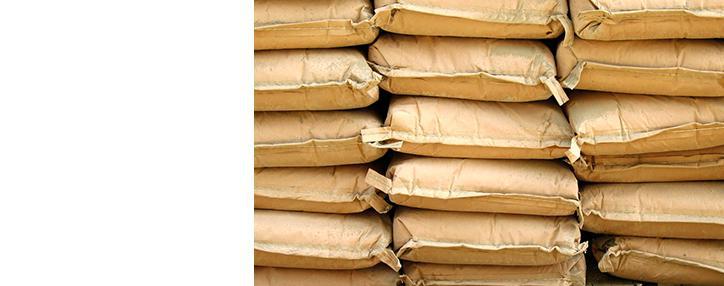Armenian parliament passes bill on raising customs duty on import of cement
19.04.2019,
17:29
By a vote of 78 to 42 Armenia’s National Assembly passed today in the first reading a bill that calls for raising the customs duty on imports of cement.

YEREVAN, April 19. /ARKA/. By a vote of 78 to 42 Armenia’s National Assembly passed today in the first reading a bill that calls for raising the customs duty on imports of cement. Economic Development and Investment Minister Tigran Khachatryan said the bill calls for raising the customs duty on cement imports from Iran and other countries to 22,000 drams per one metric ton.
‘We cannot allow the closure of our cement producing enterprises. They need state support,” the minister argued. He said that in 2018, local production increased by 53%, while imports by 3.5 times.
He said out of 680,000 tons of cement sold in Armenian in 2018, some 512,000 tons were locally produced and 168,000 tons were imported cement. Khachatryan also said a study conducted by the ministry shows that the average cost of one ton of locally produced cement at the end of 2018 was 37,000-38,000 drams, while the cost of cement from Iran on the border was about 8,500 drams plus 12,000-13,000 drams for transportation. The increased duty on the import of cement from Iran will be established only for one year - until April 1, 2020.
The minister also said that the duty rate is proposed to be set at a level that would give local producers an advantage, but at the same time, would not ouster importers from the market.
Hayk Sargsyan, a member of the standing committee on economic issues from the My Step faction, said the increased import duty on cement would generate about 4 billion drams in additional budget revenue.
The bill was opposed by the Prosperous Armenia Party’s faction, who argued that the bulk of output of local cement plants is not cement, but clinker. A Prosperous Armenia lawmaker Arthur Grigoryan argued that the cement plant in the town of Ararat spends at least $3 million on natural gas, $1.5 million on electricity and pays salaries to 1,400 workers on a monthly basis to produce 100 thousand tons of clinker, which is used further to produce cement.
‘Now, it turns out that it is more profitable for the plant to import the clinker and stop using natural gas, electricity and pay wages, because 400 workers would be enough to produce cement from clinker," he said.
Gevorg Papoyan, a deputy from My Step faction, stated that this is not a matter of cement, but of the future of the Armenian economy.
"Do we need local production? Yes. Should the government support local production? Yes. Should Armenia import cement from other countries, increasing competition in the market? Yes. Should importers and local manufacturers be provided with equal playing filed? Yes," he said, adding that the quality of the imported cement is much higher that that produced in Armenia.
He said citizens have the right to buy cheaper and high-quality cement and, according to him, the bill gives enterprises time to carry out technical re-equipment, reduce production costs and improve competitiveness in the market.
Another My Step lawmaker Hayk Gevorkyan stated that Ararat cement exports its cement at 26 thousand drams per ton, but sells at 50,000-60,000 drams at the local market. -0-
‘We cannot allow the closure of our cement producing enterprises. They need state support,” the minister argued. He said that in 2018, local production increased by 53%, while imports by 3.5 times.
He said out of 680,000 tons of cement sold in Armenian in 2018, some 512,000 tons were locally produced and 168,000 tons were imported cement. Khachatryan also said a study conducted by the ministry shows that the average cost of one ton of locally produced cement at the end of 2018 was 37,000-38,000 drams, while the cost of cement from Iran on the border was about 8,500 drams plus 12,000-13,000 drams for transportation. The increased duty on the import of cement from Iran will be established only for one year - until April 1, 2020.
The minister also said that the duty rate is proposed to be set at a level that would give local producers an advantage, but at the same time, would not ouster importers from the market.
Hayk Sargsyan, a member of the standing committee on economic issues from the My Step faction, said the increased import duty on cement would generate about 4 billion drams in additional budget revenue.
The bill was opposed by the Prosperous Armenia Party’s faction, who argued that the bulk of output of local cement plants is not cement, but clinker. A Prosperous Armenia lawmaker Arthur Grigoryan argued that the cement plant in the town of Ararat spends at least $3 million on natural gas, $1.5 million on electricity and pays salaries to 1,400 workers on a monthly basis to produce 100 thousand tons of clinker, which is used further to produce cement.
‘Now, it turns out that it is more profitable for the plant to import the clinker and stop using natural gas, electricity and pay wages, because 400 workers would be enough to produce cement from clinker," he said.
Gevorg Papoyan, a deputy from My Step faction, stated that this is not a matter of cement, but of the future of the Armenian economy.
"Do we need local production? Yes. Should the government support local production? Yes. Should Armenia import cement from other countries, increasing competition in the market? Yes. Should importers and local manufacturers be provided with equal playing filed? Yes," he said, adding that the quality of the imported cement is much higher that that produced in Armenia.
He said citizens have the right to buy cheaper and high-quality cement and, according to him, the bill gives enterprises time to carry out technical re-equipment, reduce production costs and improve competitiveness in the market.
Another My Step lawmaker Hayk Gevorkyan stated that Ararat cement exports its cement at 26 thousand drams per ton, but sells at 50,000-60,000 drams at the local market. -0-



